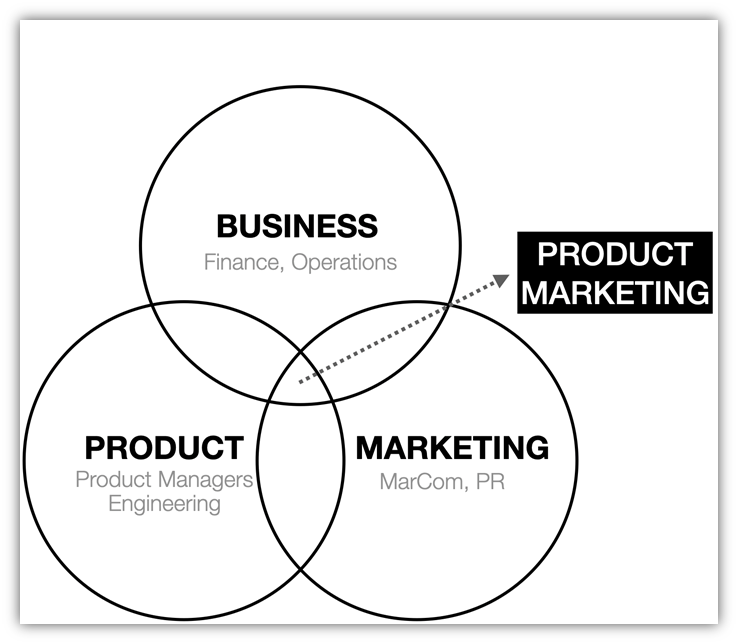What is product marketing & why is it important to businesses?
This article was first published in the downloadable first issue of markonmag. The article has since been updated by Nicole Rachel Kwan.
I joined Apple in 2018 as a summer analyst in the Product Marketing team.
During my time there, I conducted research on iOS and iPhone technologies and presented my recommendations to the product marketing team.
The world of Product Marketing was very new to me. It wasn't something that I had even heard of before joining Apple, let alone learning about the role in class despite being a marketing major.
Therefore, it took me a little longer than expected, one internship and another part-time stint, to finally realise what exactly a great product marketing team does.
But before I delve deeper into the juicy details, let’s start with the basics. What exactly is product marketing?
Product marketing definition
Product marketing is part of every step of the product development cycle - from developing and positioning to launching a product. Product marketers conduct research on customers and competitors to understand what needs are being met, and what remains unfilled.
They also develop the positioning of a product - defining what makes it unique, and communicating the benefits of using the product to consumers.
After launch, product marketers continue working with the product management team to adjust their marketing strategy.
Why product marketing is important for businesses?
Through the research done at the early stages of product development, product marketers ensure that there is a fit between the product that is developed and the market. Having a good product-market fit means that the product solves a real problem and addresses the unmet needs of consumers.
Prior to the launch of the product, product marketers develop the positioning and messaging of the product, to educate the market on the product or new feature. This is important because it helps consumers understand what they get out of the product, and drives product adoption.
Imagine developing and launching a product without product marketing - without conducting research on consumers’ needs and challenges, it would be pretty difficult to develop a product that solves their problems.
After investing much time into testing and developing the product, it’s finally launched - but without consistent messaging to educate the target audience, they are unaware of the product, its benefits, and why they should buy it.
What does a product marketer do?
Product Research: product marketers do research on the needs of consumers, and develop buyer personas for better targeting. This overlaps with what user design (UXD) professionals do, to understand the challenges and goals of their users.
Coordinate marketing, product, and sales teams: product marketers educate both internal and external stakeholders, such as the sales team and customers, on the new product and its benefits. This helps both employees and consumers alike to have a clear understanding and reasonable expectations of the product.
Position the product: product marketers position the product in the market, defining why the product was made, who it was made for, and how it solves problems or meets the needs of its target audience.
What is the product marketing process like?
Product marketing is a hyper cross-functional team that brings the product to market.
The team sits at the intersection of three key business functions and its ever-changing role is best explained with regards to the stages of a product life cycle.
This is what a product marketing plan looks like:
1) Product Development
Being able to develop a great product requires an in-depth understanding of the market and customer needs. Thus, extensive research is carried out during this phase.
This helps product marketers understand who their target audience is. They create buyer personas and define the challenges, needs, pain points and goals of the audience in using the product.
A significant portion of this research is funnelled into one of the sexier parts of the role - working closely with product teams to inform them about what products to build, and who to build them for.
For example, if a mobile game was preparing a new update, they would conduct research on challenges faced by users. To do so, they could look at app reviews, in-game reports, or surveys that they sent to users.
A good marketer would leverage other available data, such as in-game analytics, and use these to draw insights on what users like or dislike. This might flag out issues such as lag faced in certain parts of the game, or delayed response after pressing a button.
2) Pre-Launch
Once the product is ready for launch, the PM team works closely with Marketing Communications, PR and even Finance to develop a messaging, positioning and pricing strategy.
This entails developing a strategy that allows companies to effectively and succinctly communicate the value of the product to their target customers.
During this step, product marketers may create product-focused content, such as landing pages, or blog posts. This garners the interest of customers and answers questions they may have about the product and is a good opportunity to demonstrate how it solves existing challenges that consumers face.
Continuing the earlier example of a mobile game update, this is the point where product marketers would begin hyping up the new launch.
They will inform gamers that a new update is coming and provide a summary of what’s changing in the new update. For example, they might have solved the lag issues and improved the response speed. They might also have added new characters or character equipment.
3) Post-Launch
Getting consumers hyped and ensuring the product is available at launch isn’t possible without the orchestration of a perfect product launch combined with a viable go-to market strategy.
Once again, this is a cross-functional effort and requires product marketers to work closely with and perhaps even train different teams such as sales, retail, customer service etc.
Lastly, gathering feedback, optimising product performance (e.g. through software updates) and tweaking the marketing strategies are all part and parcel of post-launch. At times, companies involve influencers, press and media as part of their go-to market strategy as well.
After releasing the latest game update, the company would then announce it on social media, in addition to an announcement for users when they open the application.
To promote the adoption of the new update, they may give users in-game rewards for updating it. A few days or weeks after launch, they could collect feedback through surveys sent to users.
What defines success for product marketers?
Post-launch, it is critical for product marketers to evaluate their strategy and measure the success of the product. Here are some of the metrics that product marketers look at to measure success:
Product usage: This measures how much the product is used, and is important as it can boost overall revenue. This includes the adoption of specific features, which allows you to understand if the feature is really useful to the consumer.
Revenue: Probably the most conventional metric to track, revenue is one of the main goals of a product launch. Since product marketers are responsible for ensuring the product succeeds at launch, revenue goals are an important metric to track.
Net Promoter Score (NPS): This measures the satisfaction of consumers, by gauging how likely they are to recommend your product to others. When compared to other metrics, NPS can provide a better picture of how to satisfy consumers.
What qualities and skills do you need to be a product marketer?
To be successful in this role, the following might offer some perspective on the core skills of a product marketer.
Passionate about the industry and firmly believes in the company’s values & offerings: For many people, it’s a lot easier to develop and promote a product when they’re passionate about it, and truly believe that it benefits consumers.
Very strong written and verbal communication skills: Communication skills help marketers communicate both internally among different teams and stakeholders, and externally to consumers.
Strong marketing foundational knowledge across all 4Ps/7Ps of marketing: Being involved in product development means that product marketers must harness their knowledge of the 4Ps/7Ps to develop an offering of value to consumers.
In-depth market knowledge about the company’s product line and entire product category: This helps product marketers in understanding what needs are currently being met, and what remains unfulfilled for consumers.
Strong stakeholder management skills required to work with multiple cross-functional teams and external partners: Product marketers need to work with product managers, developers, sales teams, and many other stakeholders. Stakeholder management skills help make this process more painless and help the different teams work together in synergy.
You need to be able to develop large scale strategies to achieve specific objectives like increasing awareness, sales, daily active users etc. Ultimately, the goal of product marketers is to increase product adoption, which can be broken down into several objectives such as the ones above. To do so, product marketers need to be able to develop strategies to achieve these goals.
Wrapping up our dive into product marketing
Most people think of marketing as creating advertisements, launching campaigns, and running mailing lists.
Product marketing widens that scope by giving marketers the opportunity to be involved in the product right from the beginning, from research and development to promoting and launching the product.
Beyond product marketing, there are many other areas of marketing that allow collaboration with different teams and stakeholders. If you want to explore these other fields, read more about them in this online marketing magazine.

